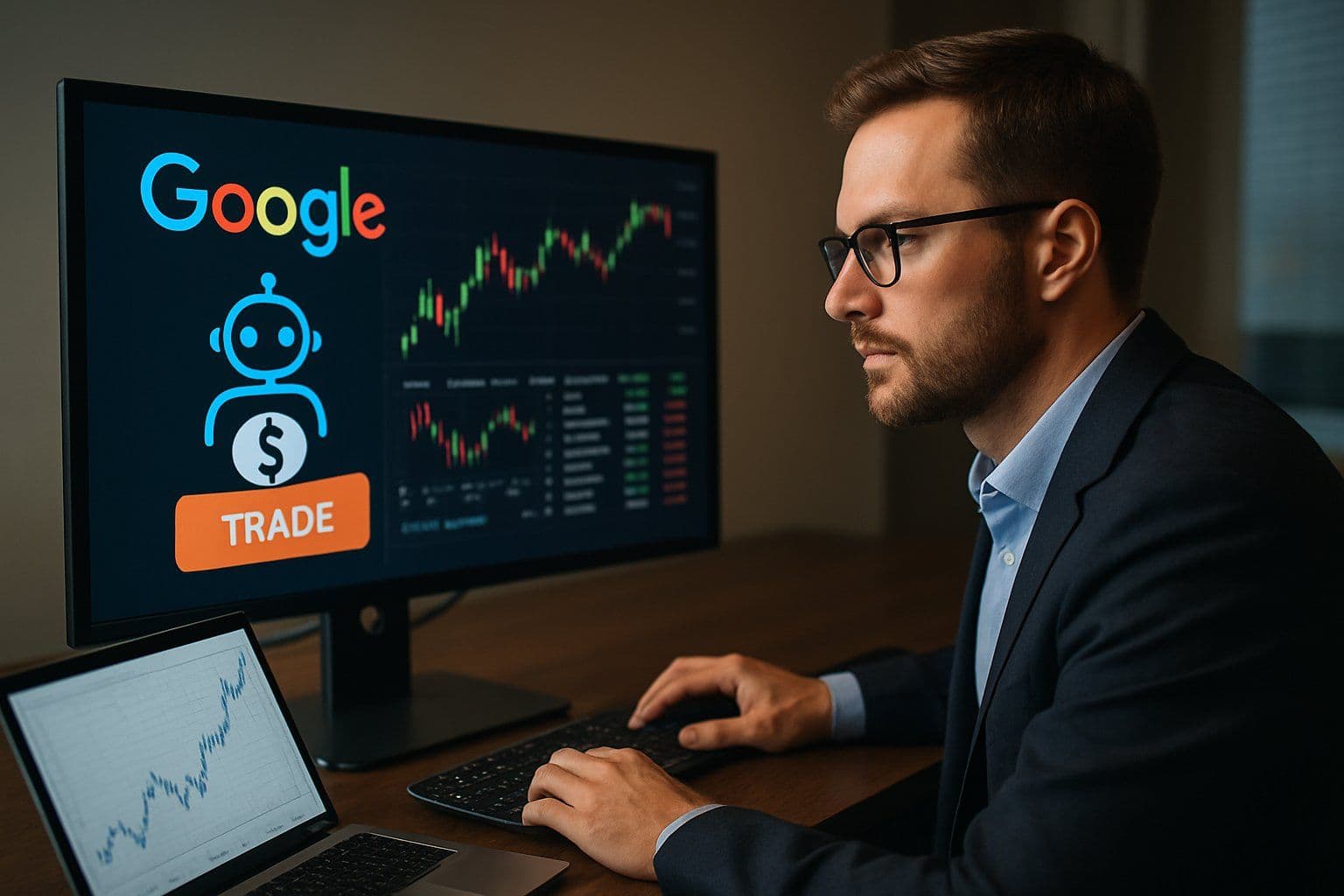When Google quietly unveiled its work on the Agent Payments Protocol, few outside the developer world grasped its potential impact. Inside fintech and blockchain circles, however, it sparked equal parts fascination and unease.
The idea is simple but revolutionary: artificial intelligence agents, rather than human users, could soon manage financial transactions directly. They would buy, sell, and move funds autonomously — including within decentralized finance ecosystems. For crypto markets, it marks the start of a new era where automation and money merge.
How AI-Powered Payments Work
Digital assistants like Google Assistant and Alexa already manage small, low-risk tasks such as sending messages or making shopping lists. The Agent Payments Protocol represents a fundamental leap. It would allow AI systems to initiate and complete financial transactions without human confirmation each time.
Imagine a personal AI that monitors your crypto portfolio, sells tokens before a dip, or shifts liquidity between DeFi pools based on real-time conditions. It’s automation elevated to autonomy. But with that autonomy comes the erosion of oversight.
As one developer familiar with the project put it, “The goal is frictionless finance — but the friction we’re removing is human control.”
Efficiency Meets Accountability
To traders and investors, this technology promises precision. AI agents could analyze market sentiment, on-chain data, and global indicators, executing trades faster than any human could. Hedge funds already rely on algorithms, but this next step introduces self-governing behavior. These agents can adapt strategies on their own, rewriting rules in real time.
However, this raises a critical question: who bears the consequences when an AI makes a costly or unlawful decision? The user who granted access? The developer who trained the model? The platform that deployed it?
Legal experts warn that financial laws rely on intent — a concept artificial intelligence doesn’t possess. “We’re entering a world where logic replaces intent,” one former regulator said. “And our laws aren’t built for that.”
The Privacy Cost Behind the Innovation
For an AI trading agent to function, it must know you deeply — your portfolio, habits, and emotional tolerance for risk. That level of access forms a complete behavioral and financial profile, and it’s immensely valuable to advertisers, data brokers, and cybercriminals.
Security researchers have already warned that prompt injection attacks could manipulate AI agents into executing unauthorized transfers or leaking sensitive information. Unlike traditional hacks, these exploits occur through language — tricking the AI into believing malicious requests are legitimate.
If an agent misfires or gets compromised, proving wrongdoing could be nearly impossible. Worse, since such actions would appear “approved,” fraud insurance and chargebacks may not apply.
What This Means for DeFi
Autonomous agents won’t just change personal finance — they’ll redefine DeFi’s structure. Smart contracts are designed to interact with human-controlled wallets, not self-governing AIs. When agents begin to execute swaps, vote in governance proposals, or rebalance liquidity, new vulnerabilities could appear.
Developers may need to build verification layers that confirm whether a transaction came from a trusted agent. Exchanges might require separate compliance processes for machine-led accounts. The result could be a shift toward machine-to-machine finance, where trading happens faster but with less transparency.
This evolution could make markets more efficient — or more fragile. As algorithms start to trade against one another, small logic errors could ripple through markets in seconds.
The Collision Ahead
Google’s Agent Payments Protocol is only an early step, but it signals where financial technology is heading. Soon, AI agents could manage wallets, execute trades, and even interact with other AIs — all without a single human command.
It’s a vision that blends convenience with risk. We are on the brink of delegating financial decision-making to systems we can’t fully explain or control. The question isn’t whether AI agents will trade crypto — they almost certainly will — but how we define responsibility when they do.
In the pursuit of smarter money, we may be surrendering what makes it ours in the first place: the ability to choose, err, and remain accountable.

